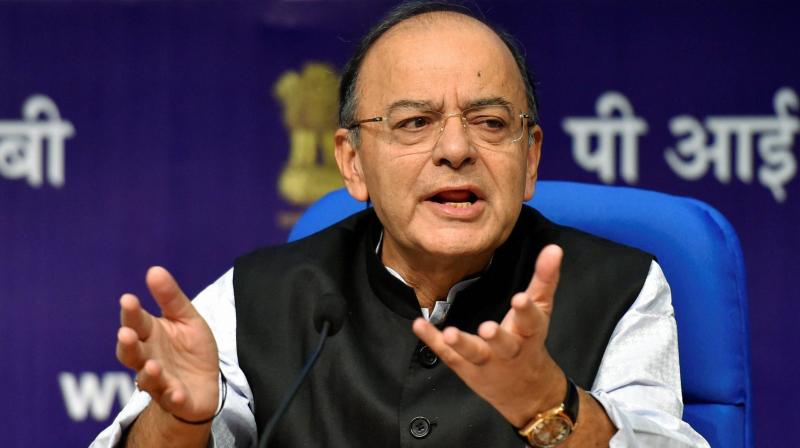Can't let shadow economy be larger than real economy, says Arun Jaitley
You can't have an economy where the size of the shadow economy is much bigger than the apparent economy itself, Jaitley said in Mumbai.

Mumbai: Terming tax-paying as a "patriotic duty", Finance Minister Arun Jaitley on Saturday said given our aspiration to be a dominant player on the world stage, we cannot afford to be a place where the shadow economy is bigger than the real economy.
"You can't have an economy where the size of the shadow economy is much bigger than the apparent economy itself," Jaitley said in Mumbai.
Without naming the note-ban and GST rollout, both of which have slowed down the economic engine, he said the process of making a cleaner economy is set in motion to achieve the aspirations like being a developed economy and the fastest growing among major economies of the world.
While addressing an ET awards function in Mumbai, he said government has been taking steps "one by one" towards this direction and some impact is already visible like an enlarged tax base, jump in digital transactions and squeezing out cash from the economy.
Conceding that there will be some "noise and grievances" because of the implementation of tax reforms like GST, he said paying taxes is essential.
"Paying taxes is always a fundamental duty of every citizen. It's a patriotic duty to be a part of that structure, rather than outside the structure. It is only then that the implementation will really show its larger, longer-term impacts," he said.
It can be noted that the note-ban and the hasty rollout of GST are the main reasons for the sluggish growth, with the GDP growth falling for sixth straight quarters to 5.6 per cent in the June quarter.
Without mentioning any specific criticism, he asserted that tax rates in the country are the lowest in the world and added that this will help the agenda of widening the tax base.
On direct taxes side, he said government has reduced them in such a way where the lowest tax slab is 5 per cent, while on the indirect tax side, it is as low as 1 per cent.
It can be noted that the Tamil film 'Mersal' which is in controversy right now for criticising GST and note ban, has a mention of the 7 per cent GST in Singapore.
He said the process of structural reforms has a long way to go and added that government has grabbed a lot of low hanging fruits, like increasing FDI caps in multiple sectors.
Terming the introduction of the Insolvency and Bankruptcy Code as a "belated reform" he expected the measure to bear fruits going forward.
Claiming that government is "extremely transparent" when it comes to banking matters he said he wants a system which shows the true health of the system.
"Our banks have lent excessively. And while we were lending excessively, we were through the various restructuring processes of evergreening those loans. Till 2015, nobody knew what the real picture was. The real picture was hidden below carpet. No economy can really survive if the main source of finance is in such non-transparent position itself," he said.
He hoped that global investors will appreciate the Rs 2.11 trillion fund infusion into state-run banks.

